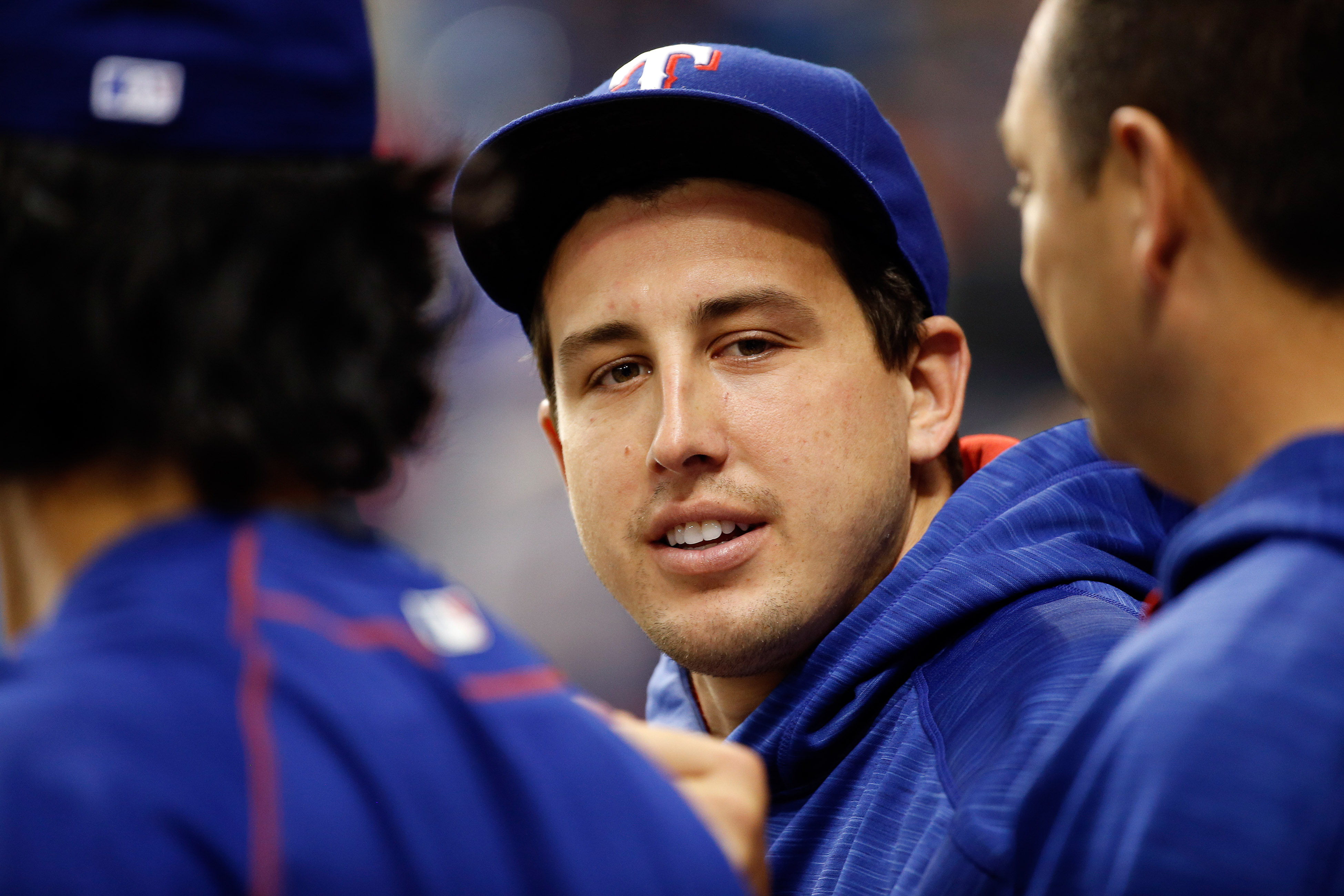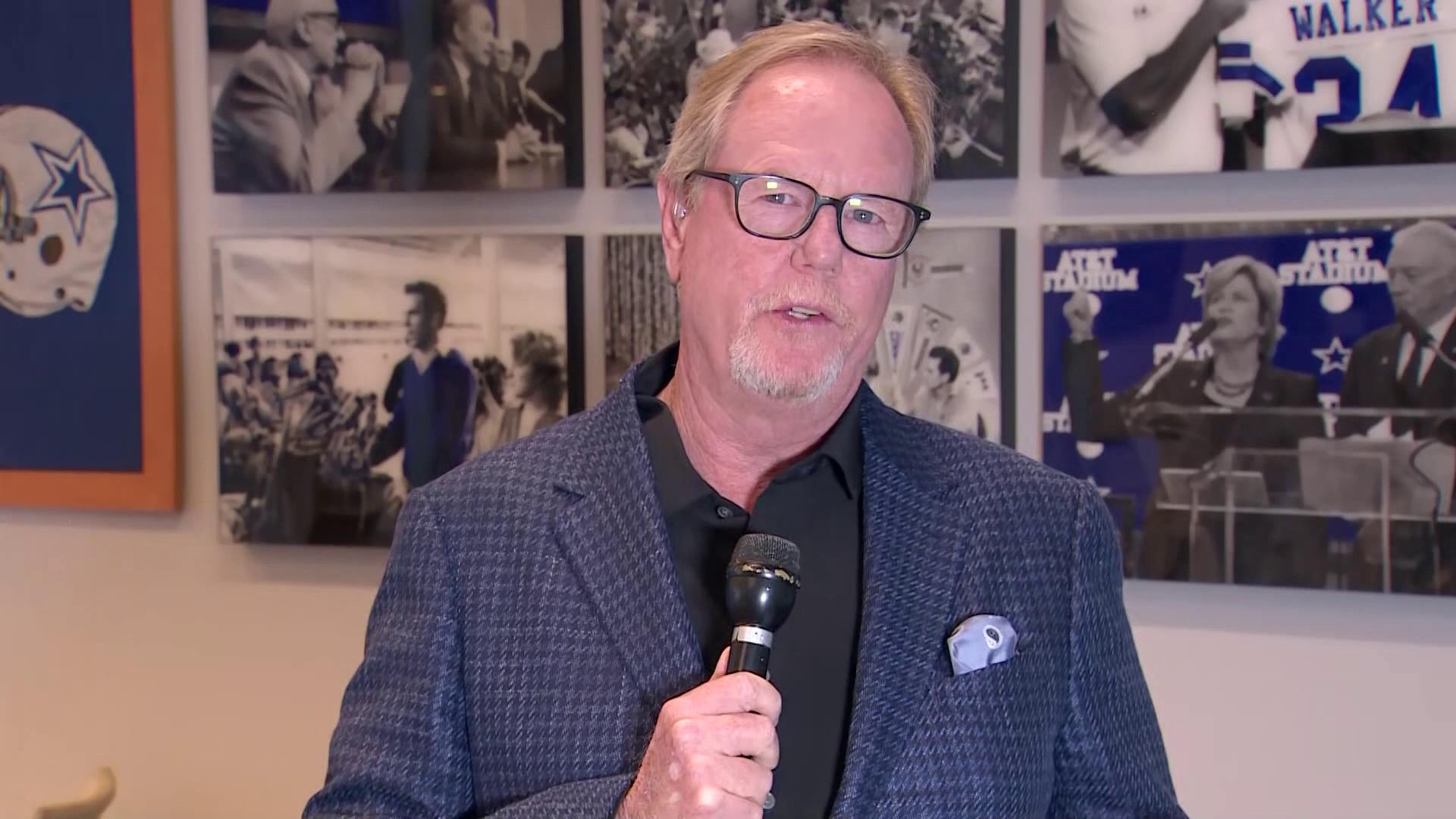A professor one time told me “We are all students.” The implication being that no matter where we are in life, we never stop learning. It’s a good axiom, one that implores us to understand that there are never absolutes when it comes to knowledge. Even when we’re not trying there are lessons big enough to change lives out there, waiting for us to consume them. All it takes is a willingness to look beyond what we already know, and opening our eyes to what we could.
This brings me to Derek Holland, one of Texas’ most controversial (now ex) players over the last half decade plus. Ask ten Rangers fans about their thoughts on the Dutch Oven and you’ll get ten different answers. The word enigma comes to mind, a figure that eludes a singular definition despite being in the public eye in a large media market for seven years.
One thing I am sure about: Holland may be many things to many people, but to us all he represents something much bigger than the game.
Life itself.
On April 22nd, 2009 the Rangers played the Toronto Blue Jays. On this day during the Toronto half of the 6th, then Texas manager Ron Washington made a call to the bullpen for a fresh faced left hander named Derek Holland. In his virgin sojourn into the big leagues, Holland got all the way into the ninth with only two hits.
He handed the ball off to the oft forgotten Willie Eyre, who ushered the game into extra innings. Texas went on to lose 8-7, after Darren O’Day made his own Texas debut, giving up an inherited C.J. Wilson run. O’Day’s story is worth an entire article by itself, as it exists in some Monty Python meets Bull Durham fever dream that actually happened but with a Kason Gabbard jersey on.
Holland got his first major league win on May 12 against Seattle, but didn’t start until 10 days later against Houston. Then came summer, and the Texas front office faced a big question. Toronto, the same team Holland debut against, was shopping ace Roy Halladay. Texas, with a rotation anchored by Kevin Millwood and Scott Feldman, needed an ace. Blue Jays GM J.P. Ricciardi tagged his ace with a steep price. How steep? From the Chicago Tribune on July 31:
“Shortstop Elvis Andrus, a candidate for American League Rookie of the Year, is an untouchable but Texas has high-level pitching prospects in lefty Derek Holland and right-hander Neftali Feliz, along with two highly regarded young catchers, Taylor Teagarden and Jarrod Saltalamacchia. Add in outfielder Julio Borbon and first baseman Justin Smoak, and Daniels definitely could hold Ricciardi's attention.”
The deadline came and went, with Dutch still wearing Ranger blue. The front office put their faith in him and the others above an established top 5 pitcher in the game. Halladay won the Cy Young in 2010 after an offseason trade to the Phillies, but 2011 was his last great season. Hindsight puts that non-trade in the JD win column.
Given the keys to a rotation spot, Holland over the next few years rode the major league roller coaster. 2011 and 2013 showed why Holland stayed south of the border, while 2012 was more non buyer’s remorse. 2014 began a run of luck that would continue over the next three years, putting a damper on what should have been the golden years of his career.
The story of Holland in Texas ended not with a bang, but a whimper. A few days ago Texas bought out his contract, sending him to free agency for the first time. He enters the market eight years older than he was that April night, his life and ours almost unrecognizable from when he started his journey in big league baseball.
When we think of Holland’s time in Texas, we’ll look at it through the lens of baseball.
How fans and management alike were teased by God given greatness that lacked consistency and a body that would later betray. Fans speak of how they’re disappointed he didn’t live up to the hype in the end, while others hold vitriol towards him for his perceived childlike antics. The media certainly did their part to further that narrative, at times wondering if he was able to focus on the mound.
One local sports radio program wondered once if he had SpongeBob and Patrick running around in his mind during a start. There are others who will see a young man with a lot of talent who just never put it all together, and appreciate what he did. Ten different fans, ten different answers.
What I hope isn’t lost in all this talk is what Holland represents in the grand scheme of existence. We saw a young man achieve his childhood dream and all that goes with that. We watched him mature(despite what some think), grow up, and go through the journey we all go through in private under some of the biggest lights imaginable.
There were highs (Game 4, 2011 World Series), lows (Game 2, 2010 World Series), and a whole lot of in-between. Holland’s tenure gave us the full spectrum of experiences and emotions, which is important. The bad makes you appreciate the good, and reminds you how rare the good can be.
Holland’s baseball role shifted quite a bit over the years. Initially, his talent and high prospect standing shot him up the projections to a #2 starter or even better. As he aged, those expectations calmed down becoming more realistic. At the end of his Rangers career, most just hoped he could get through five without A. His shoulder spontaneously combusting or B. Ten runs coming across.
Holland’s greatest role doesn’t come on the diamond. It never did.
His career and all things within are a great reminder to us all about life and its fragility. How no matter what we expect or think we can do, sometimes things won’t go our way. We will fail, but we can continue on. Those lows don’t last forever.
But sometimes things go perfectly our way. We succeed, but we also continue on after that. There is no permanence in any moment, but that doesn’t make the moment any less special. It just makes it not forever.
Sometimes it’ll just be OK however.
Things will go not quite right, not quite wrong. Call it average, mundane, whatever adjective you’d like. Those days happen almost as a respite from the previously mentioned two, helping us understand what those meant and how to achieve success while limiting failure.
Derek Holland is a shining example of the human experience and existence, and above all else I want that to be his legacy. Not the terrible impersonations, not the Wrigley incident, not even the glorious moment of shutting down St. Louis in the World Series.
Those are all important, but they’re all baseball. When we limit our scope to just baseball, we lose the deeper meaning of what Holland’s Texas tenure shows us. It contributes further to the dehumanization of the athlete, which is more prevalent than ever.
It shows us the full scale of human experience, warts and all. It shows the humanity we usually don’t associate with athletes, expecting them to be demigods instead of people. It shows the duality that exists in all of us, and through that reminds us that no matter what happens there’s always another game. There’s always another day to live this life, to get another chance at whatever we’re chasing.
So thank you Derek, if you ever read this. Not for all the games you pitched, not for all the segments and columns your achievements and/or missteps filled across your time here. Thank you for reminding us about our own humanity, even if you didn’t know you were doing it. It’s way more important than any strikeout or complete game shutout. As it always is, life is bigger than the game. Your impact on one will be bigger than the other, and that’s something you should take pride in.
Let his time in Texas be the lesson that some of us maybe didn’t need or want, but could definitely use. Let it also be a reminder to us when we look at athletes as nothing more than numbers on a stat sheet or a fantasy scoreboard. They’re people who do this for their job.
Just like us though, they’re a student of this world. They learn, try, fail, and try again. When we fault them, we could as easily fault ourselves because we’re not that different. After all, if the baseball players are the only ones working every day to get better, what’s the point for the rest of us?
What are your favorite memories of Derek Holland's time in Texas? Share them with Samuel on Twitter @thesamuelhale.


